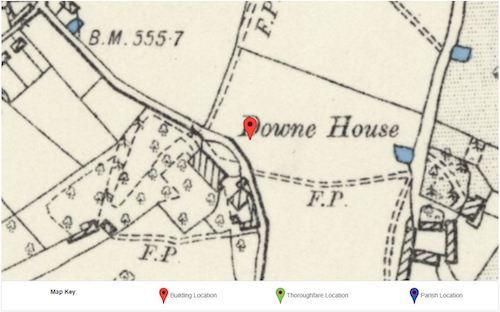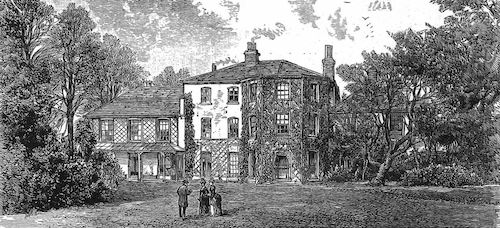The following is a press release from TheGenealogist:
Where did my ancestors live? Were the shops, churches and pubs nearby?
These questions and more are now easier than ever to answer using TheGenealogist. This online family history website has just linked all of its 1881 census records of England, Scotland and Wales to its powerful Map Explorer™ so that users can see the locations of houses plotted on georeferenced historic and modern map layers.
Uniquely on TheGenealogist viewing a household record from the 1881 census will now show a map pinpointing its location. Clicking on this pin opens Map Explorer™, enabling subscribers to explore the area and see the records of neighbouring properties.

With this new release family and house historians are able to research the streets, lanes and neighbourhoods in which their ancestors had lived at the time of the 1881 census. Joining earlier releases that saw the 1911, 1901 and 1891 census linked to the powerful mapping tool, researchers can easily identify with just the click of a button, where their forebears had once lived.
With properties plotted on a map researchers can see the routes their ancestors could have used to get to the shops, drop into their local pubs, worship at their nearby churches, travel to their places of work and relax with a walk in the nearby park. Historical maps make it possible to find where the nearest railway station was to their home, important for understanding how our ancestors could have travelled to other parts of the country to see relatives or visit their hometown.
Using this powerful resource, Starter, Gold and Diamond subscribers of TheGenealogist can investigate their ancestors’ neighbourhood from home on their computer screens, or even access the census and the relevant maps on their mobile phone while walking down the modern streets.
The majority of the London area and other towns and cities can be viewed down to the property level, while other parts of the country will identify down to the parish, road or street.

Charles Darwin’s home, Downe House
See TheGenealogist’s article: Darwin at Downe
https://www.thegenealogist.co.uk/featuredarticles/2022/darwin-at-downe-1637/
About TheGenealogist
TheGenealogist is an award-winning online family history website, who put a wealth of information at the fingertips of family historians. Their approach is to bring hard to use physical records to life online with easy to use interfaces such as their Tithe and newly released Lloyd George Domesday collections.
TheGenealogist’s innovative SmartSearch technology links records together to help you find your ancestors more easily. TheGenealogist is one of the leading providers of online family history records. Along with the standard Birth, Marriage, Death and Census records, they also have significant collections of Parish and Nonconformist records, PCC Will Records, Irish Records, Military records, Occupations, Newspaper record collections amongst many others.
TheGenealogist uses the latest technology to help you bring your family history to life. Use TheGenealogist to find your ancestors today!
 Latest News Articles
Latest News Articles If you do not see a Plus Sign that is labeled "Add comment," you will need to upgrade to either a (FREE) Standard Edition or a (paid) Plus Edition subscription
If you do not see a Plus Sign that is labeled "Add comment," you will need to upgrade to either a (FREE) Standard Edition or a (paid) Plus Edition subscription  Do you have an RSS newsreader? You may prefer to use this newsletter's RSS feed at:
Do you have an RSS newsreader? You may prefer to use this newsletter's RSS feed at: